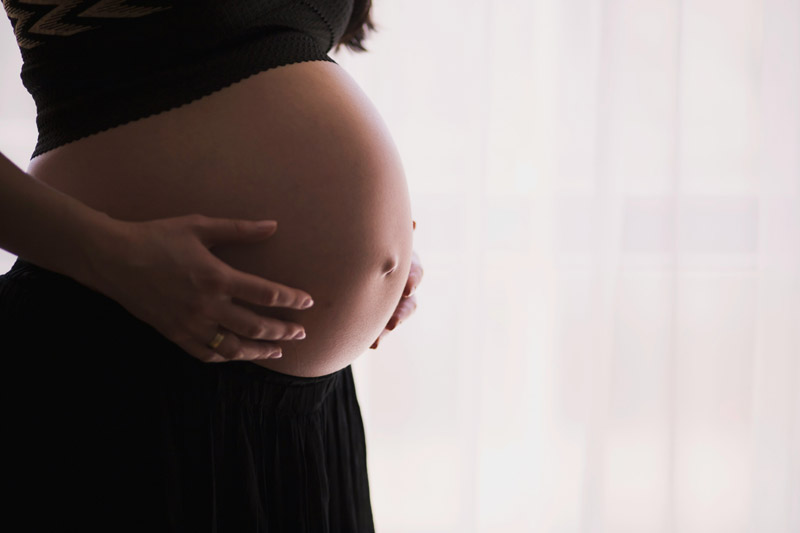 Pregancy
Pregancy Pregnancy accelerates biological ageing in healthy, young adult population, finds study
Pregnancy may carry a cost, reports a new study from the Columbia University Mailman School of Public Health.
The research, carried out among 1735 young people in the Philippines, shows that women who reported having been pregnant looked biologically older than women who had never been pregnant, and women who had been pregnant more often looked biologically older than those who reported fewer pregnancies.
Notably, the number of pregnancies fathered was not associated with biological aging among same-aged cohort men, which implies that it is something about pregnancy or breastfeeding specifically that accelerates biological aging.
The findings are published in the Proceedings of National Academy of Sciences.
This study builds on epidemiological findings that high fertility can have negative side effects on women’s health and longevity. What was unknown, however, was whether the costs of reproduction were present earlier in life, before disease and age-related decline start to become apparent, read the website of Columbia University Mailman School of Public Health.
Until now, one of the challenges has been quantifying biological aging among the young. This challenge was overcome by using a collection of new tools that use DNA methylation (DNAm) to study different facets of cellular aging, health, and mortality risk. These tools, called ‘epigenetic clocks’ allow researchers to study aging earlier in life, filling a key gap in the study of biological aging.
“Epigenetic clocks have revolutionized how we study biological aging across the lifecourse and open up new opportunities to study how and when long-term health costs of reproduction and other life events take hold”, said Calen Ryan, PhD, associate research scientist in the Columbia Aging Center, and lead author.
“Our findings suggest that pregnancy speeds up biological aging, and that these effects are apparent in young, high-fertility women,” said Ryan. “Our results are also the first to follow the same women through time, linking changes in each woman’s pregnancy number to changes in her biological age.”
The relationship between pregnancy history and biological age persisted even after taking into account various other factors tied to biological aging, such as socioeconomic status, smoking, and genetic variation, but were not present among men from the same sample. This finding, noted Ryan, points to some aspect of bearing children—rather than sociocultural factors associated with early fertility or sexual activity—as a driver of biological aging.
Despite the striking nature of the findings, Ryan encourages readers to remember the context: “Many of the reported pregnancies in our baseline measure occurred during late adolescence, when women are still growing. We expect this kind of pregnancy to be particularly challenging for a growing mother, especially if her access to healthcare, resources, or other forms of support is limited.”
Ryan also acknowledged that there is more work to do, “We still have a lot to learn about the role of pregnancy and other aspects of reproduction in the aging process. We also do not know the extent to which accelerated epigenetic aging in these particular individuals will manifest as poor health or mortality decades later in life.”
Ryan said that our current understanding of epigenetic clocks and how they predict health and mortality comes largely from North America and Europe, but that the aging process can take slightly different forms in the Philippines and other places around the world.
“Ultimately I think our findings highlight the potential long-term impacts of pregnancy on women’s health, and the importance of taking care of new parents, especially young mothers.”
Co-authors are Christopher Kuzawa, Northwestern University, Nanette R. Lee and Delia B. Carba, USC-Office of Population Studies Foundation; Julie L. MacIsaac, David S. Lin, and Parmida Atashzay, University of British Columbia; Daniel Belsky Columbia Public Health and Columbia Aging Center; Michael S. Kobor, University of British Columbia, Canadian Institute for Advanced Research, Centre for Molecular Medicine and Therapeutics.
Support Our Journalism
We cannot do without you.. your contribution supports unbiased journalism
IBNS is not driven by any ism- not wokeism, not racism, not skewed secularism, not hyper right-wing or left liberal ideals, nor by any hardline religious beliefs or hyper nationalism. We want to serve you good old objective news, as they are. We do not judge or preach. We let people decide for themselves. We only try to present factual and well-sourced news.







